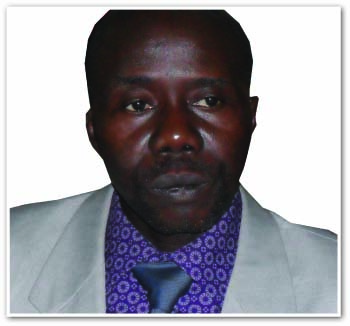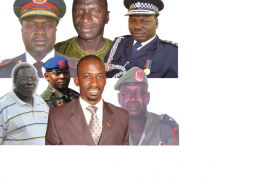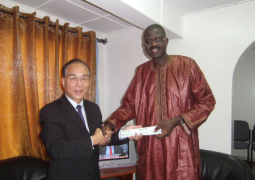
The
National Assembly Members Tuesday adopted the report on the 42nd Session of the
ACP Parliamentary Assembly and the 31st Session of the ACP-EU Joint
Parliamentary Assembly held in Windhoek, Republic of Namibia, from 8 to 15 June
2016.
Tabling
the report before lawmakers, the National Assembly Member for Banjul North,
Hon. Alhagie Sillah, the head of the delegation, said the ACP-EU JPA brings
together MEPs and MPs from 78 European Union (EU) and the African, Caribbean
and Pacific (ACP) States that have signed the Cotonou Agreement, which is the
basis for ACP-EU cooperation and development work.
He
added that the ACP-EU Joint Parliamentary Assembly was created out of a common
desire to bring together the elected representatives of the European Community
- then members of the European Parliament - and the elected representatives of
the African, Caribbean and Pacific States (ACP countries) that have signed the
Cotonou Agreement.
Hon.
Sillah further said that since the entry into force of the Treaty on European
Union and EU’s enlargement, the Assembly has acquired and played a more
prominent role in promoting human rights and democracy and the common values of
humanity.
This
has produced joint commitments undertaken within the framework of the UN
conferences, he added.
He
said in her statement, Madam Michele Ravasi, Acting Co-President of the EU,
said the Cotonou Agreement “remains unique” in the world, and whatever form the
next partnership takes, it would have to be tailored to today’s world, and
include wider civil society participation and stronger parliamentary oversight
and diplomacy.
The
JPA, as a school of democracy, Ms Ravasi stated, must set the pace for
democratic values and remains a unique forum where all issues, including
delicate ones, could be discussed, on rape and violence against women and
children in armed conflicts.
Ms
Ravasi opined that a country’s democratic credentials could often be judged by
the situation of women in society.
Ravasi
further added that even though women assume a key role in the family and could
be a powerful player in conflict resolution and prevention, this potential is
not only often under-exploited but “systematically wrecked” with the obvious
consequences for the chances of lasting peace”.
There
must be zero tolerance for rape and sex slavery.
Ms
Ravasi highlighted the remarkable character of Namibia, a stable multi-party
democracy with ambitious renewable energy policies in the context of COP21,
sustainable development and conservation of flora and fauna.
In
his contribution, the Minority Leader and the National Assembly Member for
Niamina Dankunku, Hon. Samba Jallow, said the renewable energy that the report
talked about is another important factor.
He
stated that fossil fuel energy is very expensive and not sustainable, adding
that if you move around the country you would see that many people have
electrified their compounds.
“So
renewable energy is very important, especially when it comes to Africa, because
three-quarters of the population are poor.”




